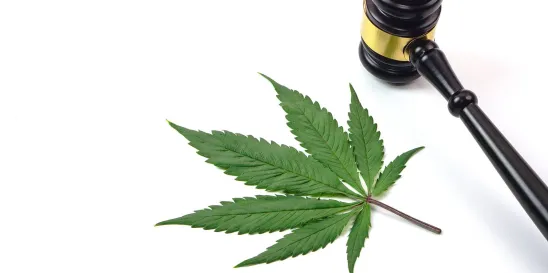We told you it may be coming, though we were admittedly cynical about the ability to pass a bill funding psychedelic research given the current political landscape — a narrowly controlled Democratic Senate that is generally considered more conservative than the House and on the eve of an election year. But, it happened. Just before Christmas, President Joe Biden signed into law the 2024 National Defense Authorization Act to the tune of $886 billion. The NDAA passed through Congress with strong bipartisan support.
You may have read that the NDAA left out certain parts of the act that some in Congress claimed addressed “divisive social issues.” And it certainly left out certain provisions the cannabis industry would have liked to have seen included — including a separate section to create a medical cannabis pilot program for veterans. What you may not have realized, though, is what the NDAA did include, such as funding for psychedelic treatment studies for members of the U.S. military with post-traumatic stress disorder or traumatic brain injuries.
Admittedly, the psychedelic component of the NDAA is small. But it shouldn’t be discounted. The law requires that the Department of Defense establish a process under which military service members with PTSD or traumatic brain injuries can participate in clinical trials involving psychedelics, including psilocybin and MDMA, as well as any “qualified plant-based alternative therapies.” The 2024 NDAA devotes $10 million to these efforts, which is certainly not an insignificant sum. DOD is also allowed to partner with eligible state or federal agencies and academic institutions to carry out the clinical trials. This could significantly expand the scope of the contemplated studies.
Under the new law, DOD is on a time clock. DOD must facilitate the process within 180 days of enactment. There are also reporting requirements. The secretary of defense is required to provide a report within one year of enactment with information about the trial’s participation and findings, and the secretary must continue to report every subsequent year for three years.
The entire act — including those provisions related to psychedelics — had strong bipartisan support. The bill related to psychedelics was added to the legislation by Texas Republican Morgan Lutrell, a member of the House Armed Services Committee and the NDAA Conference Committee, but co-sponsored by progressive Democrats Ro Khanna of California and Alexandria Ocasio-Cortez of New York. For proponents of the psychedelic industry, a compromise between a Texas Republican and AOC could be seen as a positive step forward for future legislation — at least as it relates to funding research. We think that the country’s continued focus on and concern for mental health will pave the way for even more research for psychedelics.
Finally, we’d be remiss not to point out what the bill’s passage does not mean. This doesn’t mean that psychedelics will be readily available to veterans, let alone the general public any time soon. Nor does it mean that psychedelics will be legalized. But it does show support for broadening what we know about the medical capabilities of psychedelics.





 />i
/>i

